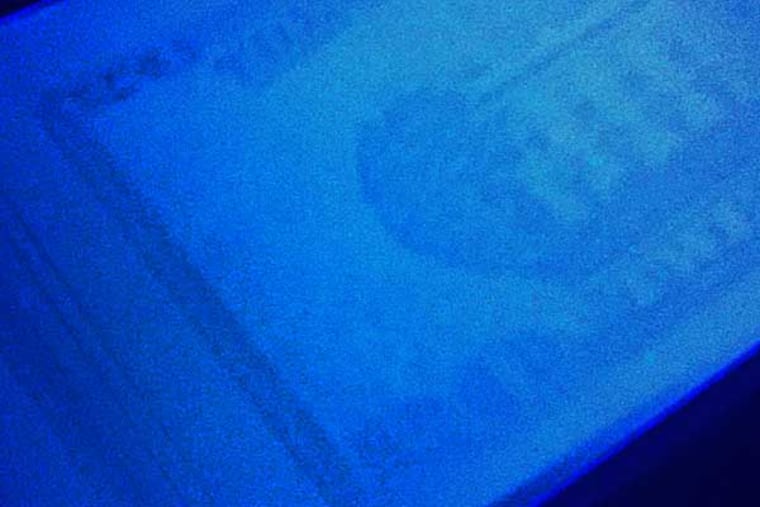Authorities confiscate $17,000 in so-called black notes
Federal Customs and Border Protection officers came across a rare counterfeit-money scam when they caught a man from Cameroon bringing $17,000 in bogus currency into Philadelphia International Airport recently.

Federal Customs and Border Protection officers came across a rare counterfeit-money scam when they caught a man from Cameroon bringing $17,000 in bogus currency into Philadelphia International Airport recently.
The officers discovered three packs of "black notes," bound similarly to checkbooks, during a routine baggage examination July 16, an official said Thursday.
The notes appeared to be blank sheets of white paper, but under ultraviolet light, officers detected faint images resembling U.S. currency, officials said. There were three packets of paper, resembling checkbooks, one containing fake $100 bills, one with $50 bills, and one with $20 bills, officials said.
Steve Sapp, a spokesman for the U.S. Department of Homeland Security, said chemicals would be used to make the blank notes look like cash.
The incident was the "absolute first time," Sapp said, in which "white bills" were seized in Philadelphia. The paper is usually black or blue.
Finding any of such counterfeits is rare, Sapp said: "No one here can remember the last we saw black notes come into the Port of Philadelphia."
Officials said the man was 34 and identified himself as a police officer. He said he was on his way to Newark, Del., and was unaware of the notes.
No charges were filed. The man was denied admission to the country.
The man said he was bringing the notes to an "acquaintance of his, so he didn't bother to question it. He was coming to the United States, so he was doing a friend a favor," Sapp said.
Criminals sell the notes to others and also them the chemicals to "wash them down," Sapp said.
Transnational criminal organizations make money on the scam, he said. "A lot of times, we see these crimes coming out of places like Nigeria or other places in Africa." Cameroon borders Nigeria.
Sapp said the people who buy the notes know they are not legitimate: "They see some kind of quick-hit profit for them."